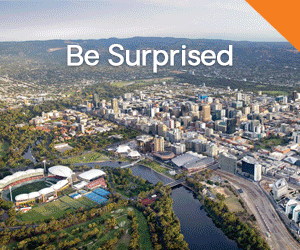5 Reasons We Need Measurement Tools for Regeneration

The meetings and events industry is a critical catalyst for the global recovery from COVID-19. It promotes the spread of knowledge within other industries and creates spaces for innovation and collaboration.
As set out in the JMIC Global Manifesto, we as an industry need to demonstrate to decision-makers the positive impacts we bring to society and the economy, to accelerate the recovery of the business meetings market. Furthermore, we need to demonstrate that such a recovery can be sustainable, green, and even regenerative. We need to usher in the era of the responsible delegate and the responsible destination.
Tools and technologies for tracking progress and monitoring performance are key in creating the value-proposition that shows our industry is committed to a regenerative recovery. For instance, OMNI is the online IT platform the GDS-Index uses to measure the sustainability performance of destinations and to monitor changes in their performance.
So, what are the key benefits of these types of tools? And how can they help destination management organisations (DMOs) to leverage support from their city councils?
1) Benchmark sustainability performance
In order to decide where to go, we need to know where we are and what we are capable of. Monitoring and measurement tools can serve to benchmark your performance and compare it with others. This is the first step of tracking one’s progress. In the case of VisitAarhusin Denmark, the city’s mayor has started to use the GDS-Index benchmark to gauge the city’s sustainability progress.
2) Monitor performance
Monitoring tools also help highlight opportunities. In the case of OMNI, it helps identify sustainability weak spots and to propose which actions a DMO can take to improve their performance. Monitoring technologies can also highlight the alignment or misalignment between a DMO and its local sustainability agenda.
3) Communicate with data
By tracking their performance using common performance indicators, destinations can identify with ease which actions have had an impact worth sharing. If a DMO performs exceptionally well for some indicators, it can become a best practice example for the rest of the industry, serve as valuable marketing content and become a point of pride for a whole destination.
4) Make informed decisions
To make responsible decisions, we have to be well-informed and weigh the pros and cons of a potential outcome. This includes the creation of strategies and the setting of goals. Monitoring tools can help bring together disparate data points into a cohesive overview and so bring clarity into the decision-making process.
5) Detect the problem to avoid disaster
Through monitoring and regular assessments, one can identify not only minor weaknesses that should be improved, but also bigger problems that if left unattended could negatively impact an organisation and its stakeholders. In this sense, monitoring tools and technologies can serve like canaries in coal mines, as delivering early-warning signals before irreparable damage is caused.

For More Info:
Website gds.earth
Other Articles
About Us
Supported by the Union of International Associations (UIA), the International Association of Professional Congress Organisers (IAPCO) and the Interel Group, the global public affairs and association management consultancy, Headquarters Magazines serve the needs of international associations organising worldwide congresses.














